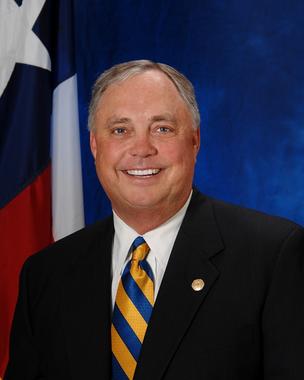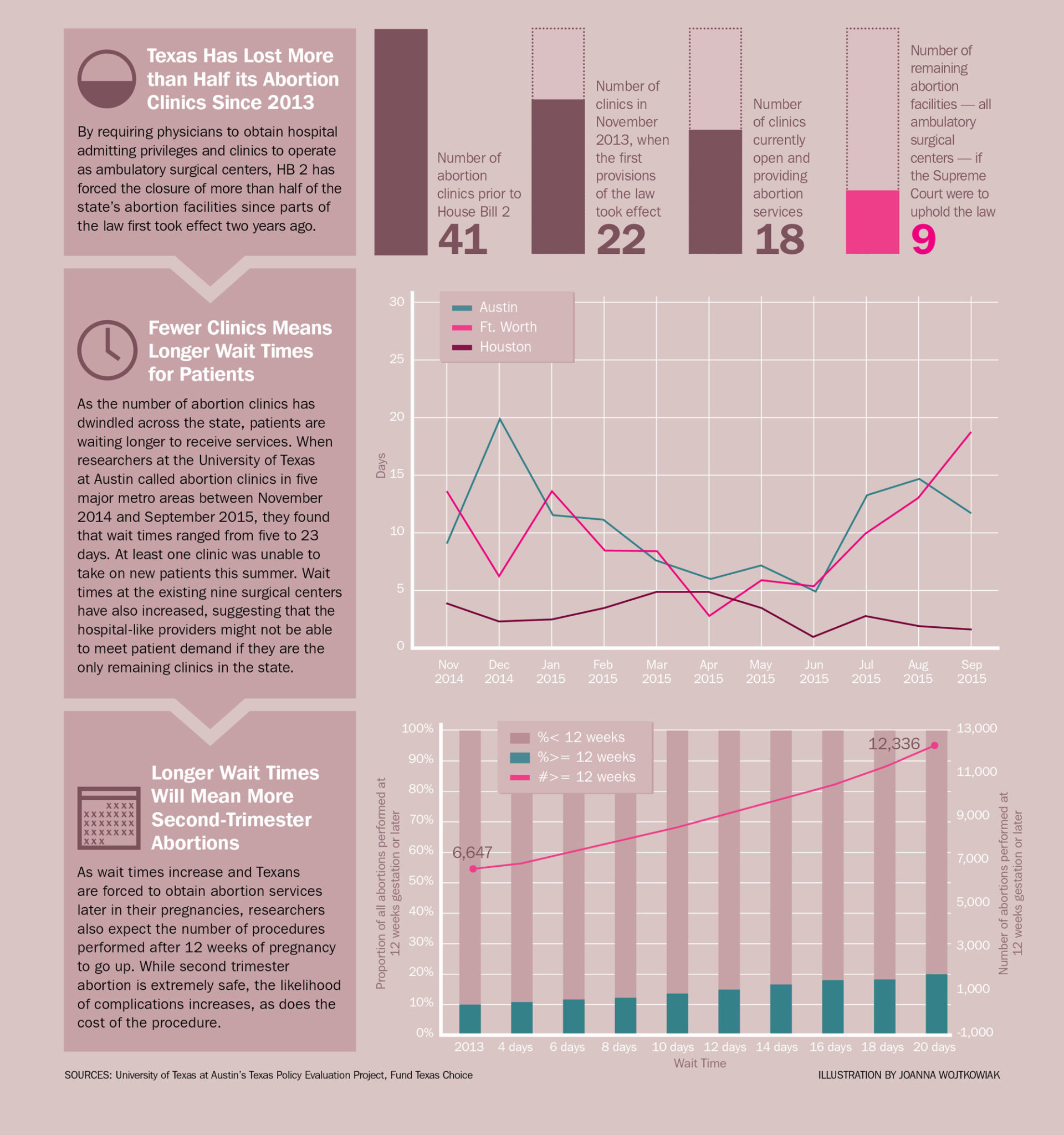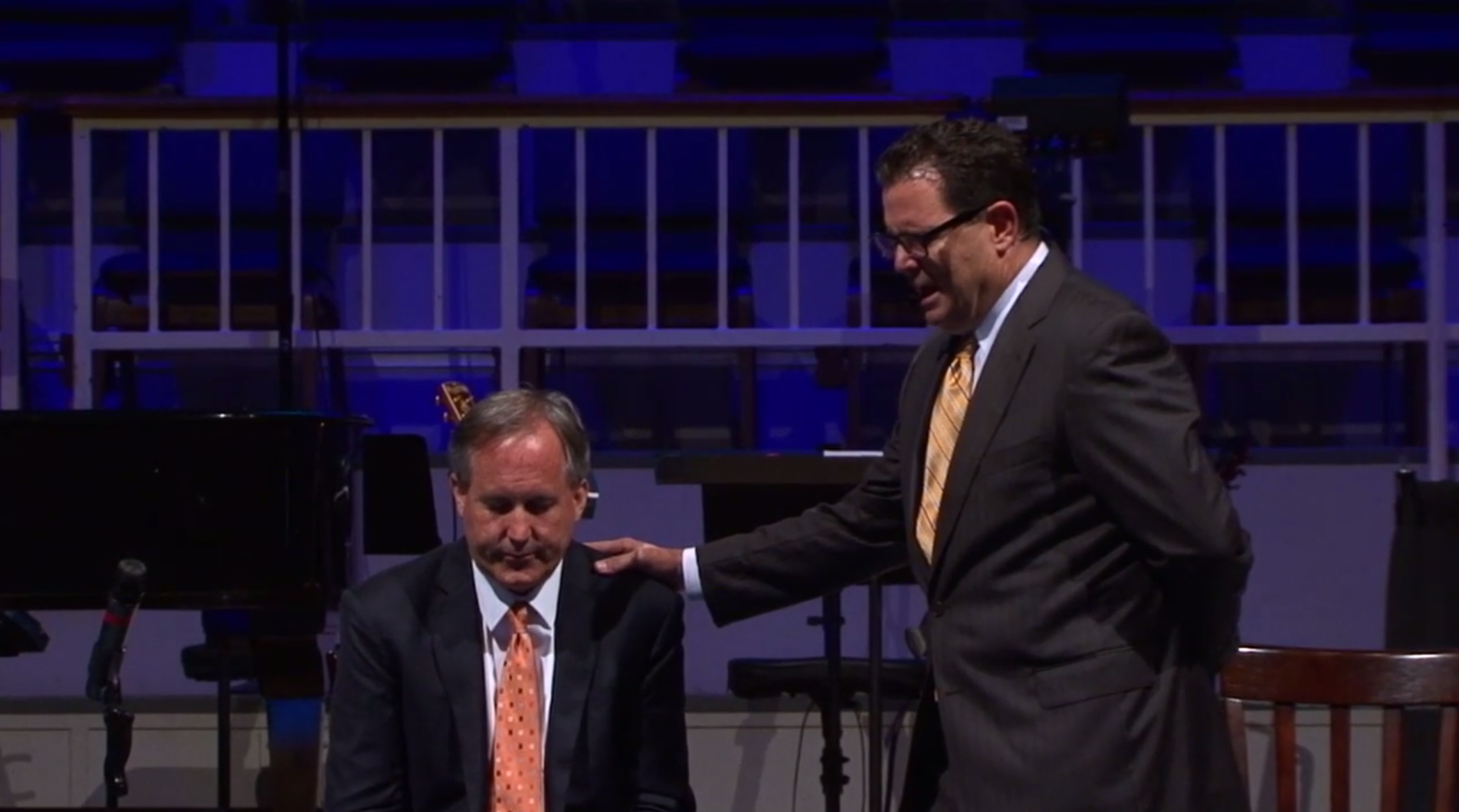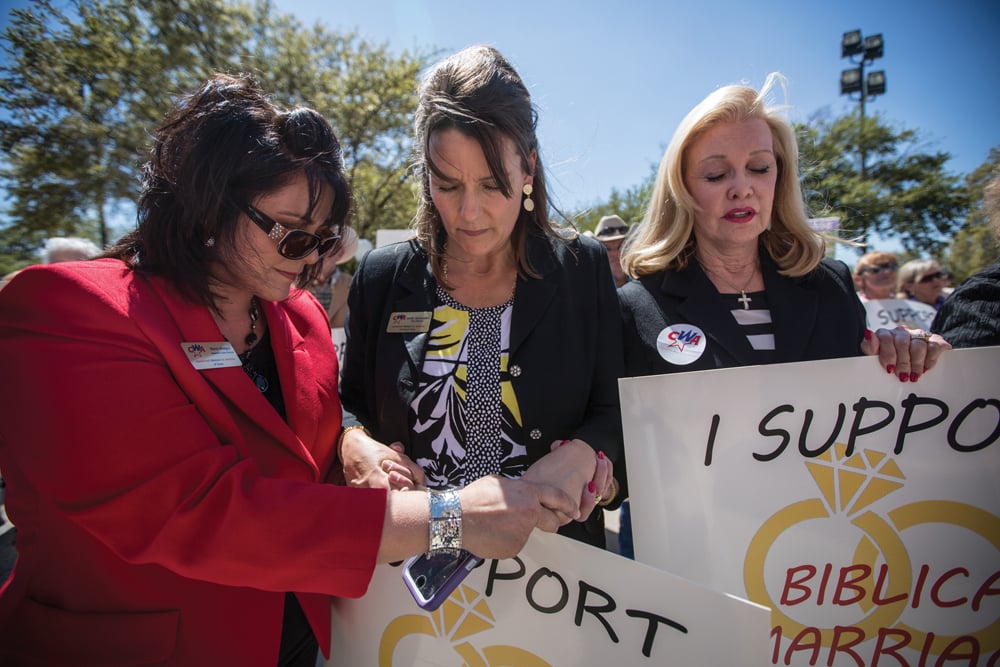
Convergence of Local Control and Fracking Lights Up the Lege

Above: Parade in favor of Denton fracking ban
Even before voters in Denton passed a measure that made their city the first in the state to ban fracking, state lawmakers were talking about filing legislation to block the ban. On Monday, more than four months after the Denton vote, a House committee discussed two bills that would derail local efforts to curb fracking. House Bill 40 would generally block cities from regulating oil and gas activity, and House Bill 539 would make cities and municipalities that do ban fracking pay for it—literally.
The hearing Monday at the House Energy Resources Committee drew an overflow crowd of oil industry boosters, environmentalists, city officials and citizens. Most of the debate centered on HB 40, authored by Rep. Drew Darby (R-San Angelo), the committee chairman.
Darby argued that the state already has the authority to regulate subsurface oil and gas activity, and that its authority preempts local governments from banning fracking. Local entities can continue to regulate surface activities and write ordinances that govern noise, traffic and odors, but they can’t control what goes on below the ground, he said.
But much of the day was spent parsing the confusing language of the legislation pertaining to what a city can and cannot do. The bill stipulates that local government is limited to regulating “only surface activity that is incident to an oil and gas operation” with ordinances that are “commercially reasonable” and don’t “effectively prohibit an oil and gas operation.” Elsewhere in the bill, “commercially reasonable” is defined as a “condition that permits a reasonably prudent operator to fully, effectively, and economically exploit, develop, produce, process, and transport oil and gas.”
Did you follow all that?
Opponents say the bill would undermine current city ordinances and allow operators to do whatever they want if they can prove that city ordinances aren’t “commercially reasonable.”
“We are experts in fracking loopholes,” said Sharon Wilson, a North Texas drilling reform advocate who was instrumental in getting the fracking ban on the ballot in Denton. “We know what they are; we live with them. [House Bill 40] is a fracking loophole.”
Darby and Rep. Jim Keffer (R-Eastland) tried to convince local government representatives that existing ordinances would likely hold up even if the bills passed.

“This bill … would have taken a whole different tack,” Darby said. “It could have done what you’re saying, what you think it’s going to do—it could have said there will be no city ordinances, no regulations, no rules that affect the operation of oil and gas. It did not. And that’s why I’m confused. Did any of you even read the bill?”
Rep. Phil King (R-Weatherford), who is also on the committee, introduced HB 539, which would require cities and municipalities wishing to ban fracking to determine how much money their local and state governments would lose in tax revenue. Entities would have to spend the next five years paying the state and schools back for lost revenue.
Later, Darby and other committee members took turns grilling Denton officials, including Mayor Chris Watts.
Would the bill prevent a city from banning fracking, like Denton did?
“In my opinion if this bill passes as written today, it would make it very unlikely that a city would be able to ban fracking,” Watts finally said. Rep. Tom Craddick (R-Midland), a stalwart friend of the oil business, asked Watts how he voted when the fracking ban went to the City Council. “I voted against it, we passed it along to voters.”
“So you passed it?” Craddick responded, to laughs and “ooos” from the packed room. It was only one of many tense moments during the hearing, which lasted for almost nine hours.
Industry representatives, a couple of mineral rights advocates and a handful of elected officials were happy with the bill’s current language, but most everyone else wasn’t. “If HB 40 was clear and concise, there wouldn’t be a room full of local elected officials here to testify against it,” said Calvin Tillman, a former mayor of Dish, a small North Texas town where many residents claim that fracking has made them and their animals sick. “I don’t think any of us would have driven all this way if we had interpreted HB 40 the way you guys have described it. We’re here because we have concerns and with all due respect, you and the industry telling us that everything will be OK is not quite as reassuring as we need.”
Even city staff from Forth Worth—whose city ordinance was lauded by industry, legislators and others in favor of the bills throughout the hearing—testified against the bills. “I do not want to sit down with every single operator and decide whether it is commercially reasonable for that operator to drill,” Fort Worth City Attorney Sarah Fullenwider said late in the night, about seven hours into the hearing.
At that point, Darby appeared fed up with having to reassure local officials that his bill wouldn’t undo their ordinances. He yelled at Fullenwider, “Yours works! Not all jurisdictions’ [ordinances] work!”
Both bills were left pending.


